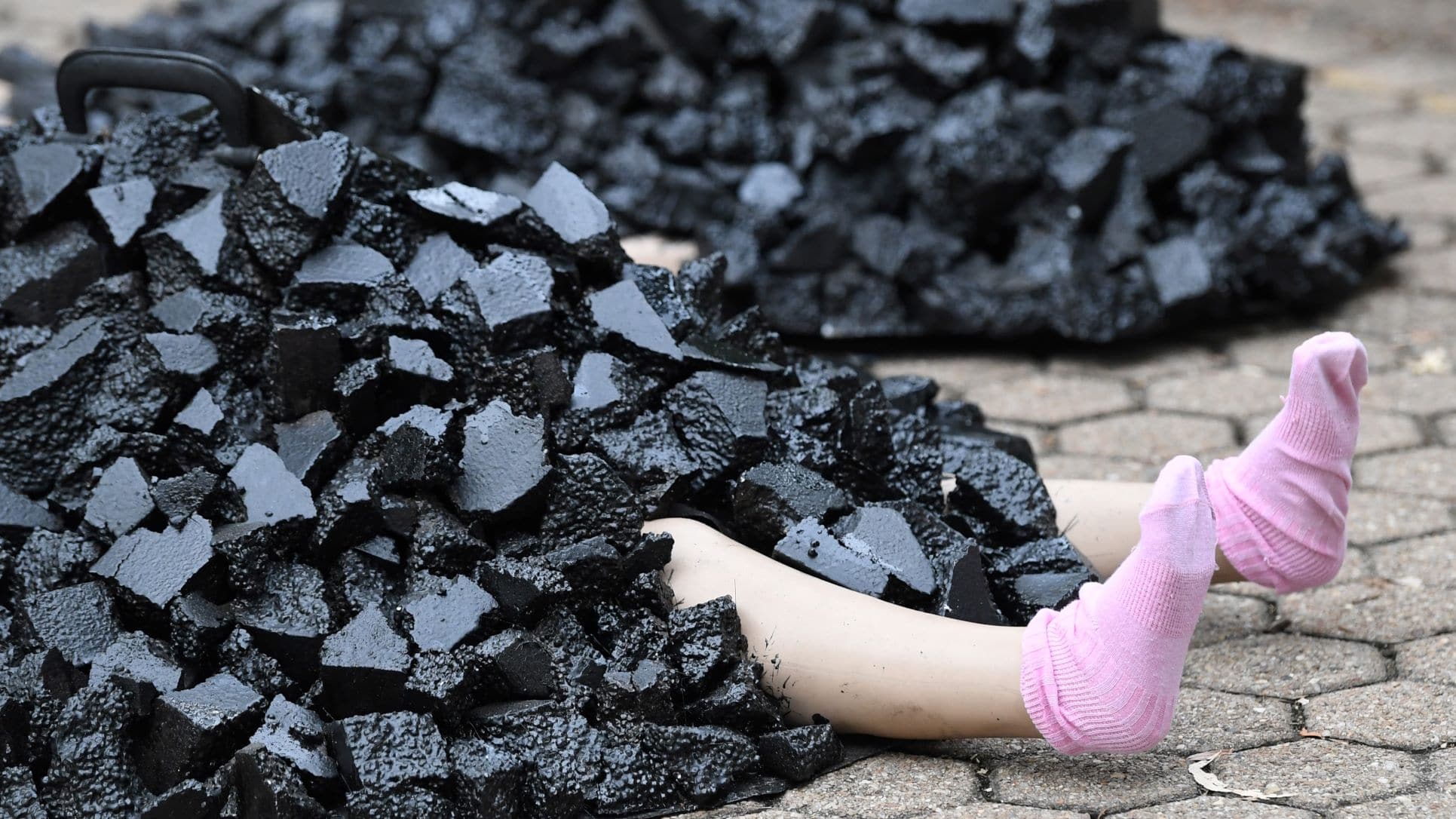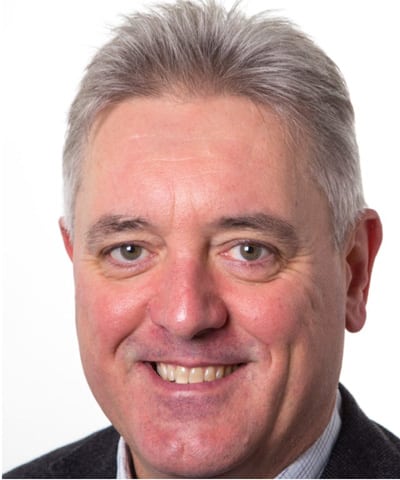Australia has been slow to combat global warming. Now wealthy entrepreneurs are picking up the mantle to drive change.

A mannequin depicting a child covered in coal is seen during an Extinction Rebellion Protest in Brisbane, Australia, 22 April 2021. Australia is one of the world’s biggest producers and exporters of coal. (EPA-EFE/DARREN ENGLAND)
Record levels of rainfall and floods on Australia’s east coast over the past few weeks followed a wet 2021 and a summer of bushfires the year before.
So you might think this would spur the country into strong climate change action. But that has yet to happen at a national government level.
In fact, at last November’s COP26 gathering in Glasgow, when the world met to outline fresh carbon emission pledges, Australia did little despite being one of the world’s top producers of coal and gas and one of the largest emitters of greenhouse gases on a per capita basis.
On the Climate Change Performance Index (CCPI) annual rankings, published after the event by German-based advocacy group Germanwatch, Australia was placed 55th out of 63 nations and the European Union on greenhouse gas emissions, renewable energy, energy use and climate policy.
Even worse, Australia was dead last in climate policy — the only country to receive no score in that section.
“Australia was missing in action on the key pledges made on emissions reduction, including those on methane and coal,” said Professor Jacqueline Peel, director of Melbourne Climate Futures, Melbourne Law School at the University of Melbourne.
Australia’s government is hamstrung by politics.
So what exactly is Australia doing?
Officially, the policy is still net zero emissions by 2050, although there was no substantial change to its targets for 2030, which is to reduce greenhouse gas emissions to 26–28% below 2005 levels by 2030. The current plan has been summarized by the government as a focus on “technology not taxes.”
Holding the Australian government back is largely politics. Its conservative Liberal National ruling Coalition is closely linked to the big mining companies that dominate the corporate landscape.
The left-leaning opposition Labor Party is closely linked to the union movement, which is concerned about jobs and communities linked to the mining and resource industries.
While the federal government has been slow to act on climate, a lot of initiatives are taking place, putting it to shame.
A big one is a push by the various state governments — Australia has six states along with two government-run territories — that have pledged greater cuts to emissions by 2030.
The state of South Australia set an impressive renewable energy record late last year when its solar and wind farms and rooftop solar systems supplied an average of just over 100% of local demand every day for a period of almost a week.
A new force, billionaires, emerges.
Now another force has emerged — Australian billionaires.
Last month Mike Cannon-Brookes, co-founder of Sydney-based software development giant Atlassian, joined forces with Canadian investment company Brookfield Asset Management to make a takeover bid for Australia’s largest energy company, AGL Energy Ltd.
The US$6 billion bid was designed to fast track the closure of AGL’s coal-fired generators, which account for 8% of domestic greenhouse gas emissions, by 2030 and to pump US$14.5 billion into renewable energy and storage.
AGL operates massive coal-fired generators in two Australian states — New South Wales and Victoria — that together are estimated to account for about 10% of Australia’s total greenhouse gas emissions.
Cannon-Brookes, who is estimated to be worth over US$15 billion, said shutting AGL’s coal-powered stations was crucial to decarbonisation. Here’s how he described AGL’s emissions: “More than all domestic and international aviation, and if it’s a country, it’s bigger than Sweden or Ireland or New Zealand, and that would make it one of the biggest decarbonisation projects on Earth.”
Under the takeover plan, Canadian partner Brookfield would fold AGL assets into its new $US15 billion Global Transition Fund, which is run by former Bank of England governor Mark Carney, who serves as the United Nations Special Envoy for Climate Action and Finance.
Climate change requires long-term planning.
A big reason these two parties want to buy Australia’s AGL and transition it away from fossil fuels is that they believe taking the company private is the best way to make that happen.
“You don’t have to deliver quarterly and six-monthly results on a continued basis, (which) makes a huge difference to the ability to execute this transition,” Cannon-Brookes said in an interview. “Having that long-term thinking, that certainty, brings your cost of capital down significantly as well. I think economically, yes, it is quite significantly different to what to the company would be able to do by itself.”
At the time of writing, the offer for AGL had been rejected by AGL, and the suitors said they had ”put their pens down” for now. But according to many analysts, Cannon-Brookes and Brookfield have not walked away from the project.
Cannon-Brookes is not the only wealthy individual trying to do something to push Australia along the path to zero emissions, but the AGL challenge has been one of the most direct to date. He has recently combined forces with another Australian billionaire, mining magnate Andrew Forrest, to invest in a $30 billion solar power export project in Australia’s Northern Territory that will start supplying clean power to Singapore from 2027.
Whether these billionaires ultimately succeed or not, they are creating a path that others are likely to follow as frustration at the lack of official action grows.
Three questions to consider:
- Why does Australia find it difficult to set ambitious climate change action plans?
- What is one advantage of having private individuals play a greater role in driving change?
- Where does your country rank on the Climate Change Performance Index?

Richard Hubbard is a finance and economics journalist with more than 35 years reporting from Australia, the UK, Asia and the United States. He is currently a freelance journalist based in Sydney. Hubbard covered the Asian financial crisis of the late 1990s from Hong Kong and Singapore, and later the run-up to the 2008 financial crisis and its aftermath from London.
